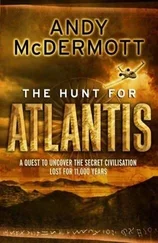Not team sports - he worked at track and field events in which he could compete as an individual and measure the performance of others. Over the years he learned to do the same in all of his endeavors, to watch and judge the actions of his fellow citizens and officers with cool detachment, behind a blank face that concealed his conclusions. In the summer of his eighth year the course of his life was forever changed. When no one would play with "the little stukach," he would wander down to the fishing docks of the small village where his grandmother had made her home. A ragtag collection of old wooden boats sailed each morning, always behind a screen of patrol boats manned by MGB - as the KGB was then known - border guards, to reap a modest harvest from the Gulf of Finland. Their catch supplemented the local diet with needed protein and provided a minuscule income for the fishermen. One boat captain was old Sasha. An officer in the czar's navy, he had revolted with the crew of the cruiser Aurora, helping to spark the chain of events that changed the face of the world. Marko did not learn until many years later that the crewmen of the Aurora had broken with Lenin - and been savagely put down by Red Guards. Sasha had spent twenty years in labor camps for his part in that collective indiscretion and only been released at the beginning of the Great Patriotic War. The Rodina had found herself in need of experienced seamen to pilot ships into the ports of Murmansk and Archangel, to which the Allies were bringing weapons, food, and the sundries that allow a modern army to function. Sasha had learned his lesson in the gulag: he did his duty efficiently and well, asking for nothing in return. After the war he'd been given a kind of freedom for his services, the right to perform back-breaking work under perpetual suspicion. By the time Marko met him, Sasha was over sixty, a nearly bald man with ropy old muscles, a seaman's eye, and a talent for stories that left the youngster wide-eyed. He'd been a midshipman under the famous Admiral Marakov at Port Arthur in 1906. Probably the finest seaman in Russian history, Marakov's reputation as a patriot and an innovative fighting sailor was sufficiently unblemished that a Communist government would eventually see fit to name a missile cruiser in his memory. At first wary of the boy's reputation, Sasha saw something in him that others missed. The boy without friends and the sailor without a family became comrades. Sasha spent hours telling and retelling the tale of how he had been on the admiral's flagship, the Petropavlovsk, and participated in the one Russian victory over the hated Japanese - only to have his battleship sunk and his admiral killed by a mine while returning to port. After this Sasha had led his seamen as naval infantry, winning three decorations for courage under fire. This experience - he waggled his finger seriously at the boy - taught him of the mindless corruption of the czarist regime and convinced him to join one of the first naval Soviets when such action meant certain death at the hands of the czar's secret police, the okhrana. He told his own version of the October Revolution from the thrilling perspective of an eyewitness. But Sasha was very careful to leave the later parts out. He allowed Marko to sail with him and taught him the fundamentals of seamanship that decided a boy not yet nine that his destiny lay on the sea. There was a freedom at sea he could never have on land. There was a romance about it that touched the man growing within the boy. There were also dangers, but in a summer-long series of simple, effective lessons, Sasha taught the boy that preparation, knowledge, and discipline can deal with any form of danger; that danger confronted properly is not something a man must fear. In later years Marko would reflect often on the value this summer had held for him, and wonder just how far Sasha's career might have led if other events had not cut it short. Marko told his father about Sasha towards the end of that long Baltic summer and even took him to meet the old seadog. The elder Ramius was sufficiently impressed with him and what he had done for his son that he arranged for Sasha to have command of a newer, larger boat and moved him up on the list for a new apartment. Marko almost believed that the Party could do a good deed - that he himself had done his first manly good deed. But old Sasha died the following winter, and the good deed came to nothing. Many years later Marko realized that he hadn't known his friend's last name. Even after years of faithful service to the Rodina, Sasha had been an unperson. At thirteen Marko traveled to Leningrad to attend the Nakhimov School. There he decided that he, too, would become a professional naval officer. Marko would follow the quest for adventure that had for centuries called young men to the sea. The Nakhimov School was a special three-year prep school for youngsters aspiring to a career at sea. The Soviet Navy at that time was little more than a coastal defense force, but Marko wanted very much to be a part of it. His father urged him to a life of Party work, promising rapid promotion, a life of comfort and privilege. But Marko wanted to earn whatever he received on his own merits, not to be remembered as an appendage of the "liberator" of Lithuania. And a life at sea offered romance and excitement that even made serving the State something he could tolerate. The navy had little tradition to build on. Marko sensed that in it there was room to grow, and saw that many aspiring naval cadets were like himself, if not mavericks then as close to mavericks as was possible in a society so closely controlled as his own. The teenager thrived with his first experience of fellowship. Nearing graduation, his class was exposed to the various components of the Russian fleet. Ramius at once fell in love with submarines. The boats at that time were small, dirty, and smelled from the open bilges that the crews used as a convenient latrine. At the same time submarines were the only offensive arm that the navy had, and from the first Marko wanted to be on the cutting edge. He!d had enough lectures on naval history to know that submarines had twice nearly strangled England's maritime empire and had successfully emasculated the economy of Japan. This had greatly pleased him; he was glad the Americans had crushed the Japanese navy that had so nearly killed his mentor. He graduated from the Nakhimov School first in his class, winner of the gold-plated sextant for his mastery of theoretical navigation. As leader of his class, Marko was allowed the school of his choice. He selected the Higher Naval School for Underwater Navigation, named for Lenin's Komsomol, VVMUPP, still the principal submarine school of the Soviet Union. His five years at VVMUPP were the most demanding of his life, the more so since he was determined not to succeed but to excel. He was first in his class in every subject, in every year. His essay on the political significance of Soviet naval power was forwarded to Sergey Georgiyevich Gorshkov, then commander in chief of the Baltic Fleet and clearly the coming man in the Soviet Navy. Gorshkov had seen the essay published in Morskoi Sbornik (Naval Collections), the leading Soviet naval journal. It was a model of progressive Party thought, quoting Lenin six different times. By this time Marko's father was a candidate member of the Presidium, as the Politburo was then called, and very proud of his son. The elder Ramius was no one's fool. He finally recognized that the Red Fleet was a growing flower and that his son would someday have a position of importance in it. His influence moved his son's career rapidly along. By thirty, Marko had his first command and a new wife. Natalia Bogdanova was the daughter of another Presidium member whose diplomatic duties had taken him and his family all over the world. Natalia had never been a healthy girl. They had no children, their three attempts each ending in miscarriage, the last of which had nearly killed her.
Читать дальше











